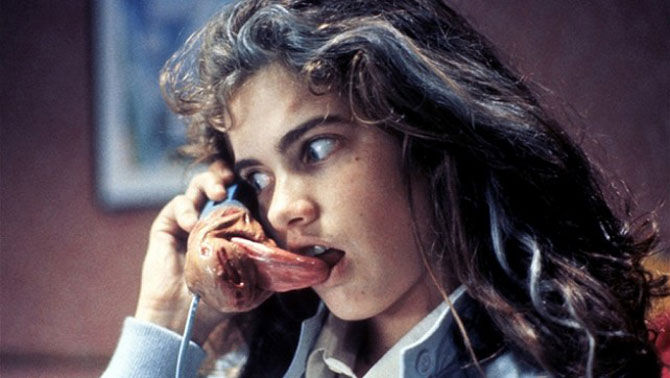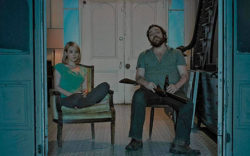As a horror fan, I would be remiss were I not to memorialize the passing of a genre titan. Wes Craven, 76, died Aug. 30 from brain cancer. Could he have only contributed one iconic film to the genre canon, that sole contribution would be his most famous film, A Nightmare on Elm Street, in which the former English teacher gave modern fiction one of its two most popular monsters.
As Universal forever linked classic monsters Dracula and Frankenstein, ‘80s slasher success has eternally coupled burned, child-murderer Freddy Krueger with masked teen-slayer Jason Voorhees. Unlike the silent, hulking Jason, Craven’s creation had a wicked sense of humor, oft sharper than his knife-fingered glove that resonated with wicked, insolent teens. Yet, it was the way the writer-director tapped into our nightmares, then decorated them with frighteningly iconic imagery like the face of Freddy protruding from the wall or the bed spewing gallons of Johnny Depp’s blood, that still terrifies audiences 30 years later.
But A Nightmare on Elm Street was not Craven’s only gift to the genre. His other classics include his first two features, the raw exploitation of Last House on the Left and The Hills Have Eyes, a meta-reimagining of the Krueger mythos fittingly titled Wes Craven’s New Nightmare and arguably the most significant horror film of the past 20 years, Scream.
Just when Craven’s career seemed to be wheezing to an ignominious end—the year before, the director had teamed with Eddie Murphy for the neither-funny-nor-scary Vampire in Brooklyn—he turned Kevin Williamson’s brilliant satire of the slasher subgenre that Craven helped build into Scream, the most frighteningly funny film of a generation. Its immediate sequel, Scream 2, was another monster success, critically and commercially. In what has now become the tail end of his career, Craven still gave us an underrated gem in Red Eye. He may not have had the stylistic calling cards of John Carpenter, but he mined the blurred lines of the waking and dreaming worlds with shocking success.
Along with his sense of scary, Craven had an eye for young talent. Depp is not the only famous face to get an early career boost from one of Craven’s scary flicks. Dee Wallace (The Hills Have Eyes), Sharon Stone (Deadly Blessing), Kristy Swanson (Deadly Friend), Patricia Arquette (A Nightmare on Elm Street 3: Dream Warriors), Peter Berg (Shocker) and the casts of the various Screams are but a few familiar faces whose early filmographies got a boost from Craven’s casting. And where would modern horror be without Heather Langenkamp’s singular final girl, Nancy Thompson? Craven even coached Meryl Streep to one of her many Academy Award nominations in his sole non-horror movie, Music of the Heart. (Though not his best effort, the movie is better than you might think.)
If you are not a horror movie fan, the passing of Wesley Earl Craven may mean very little to you, but to us fans of this often ill-treated genre, the loss is a dear one.
Like what you just read? Support Flagpole by making a donation today. Every dollar you give helps fund our ongoing mission to provide Athens with quality, independent journalism.










